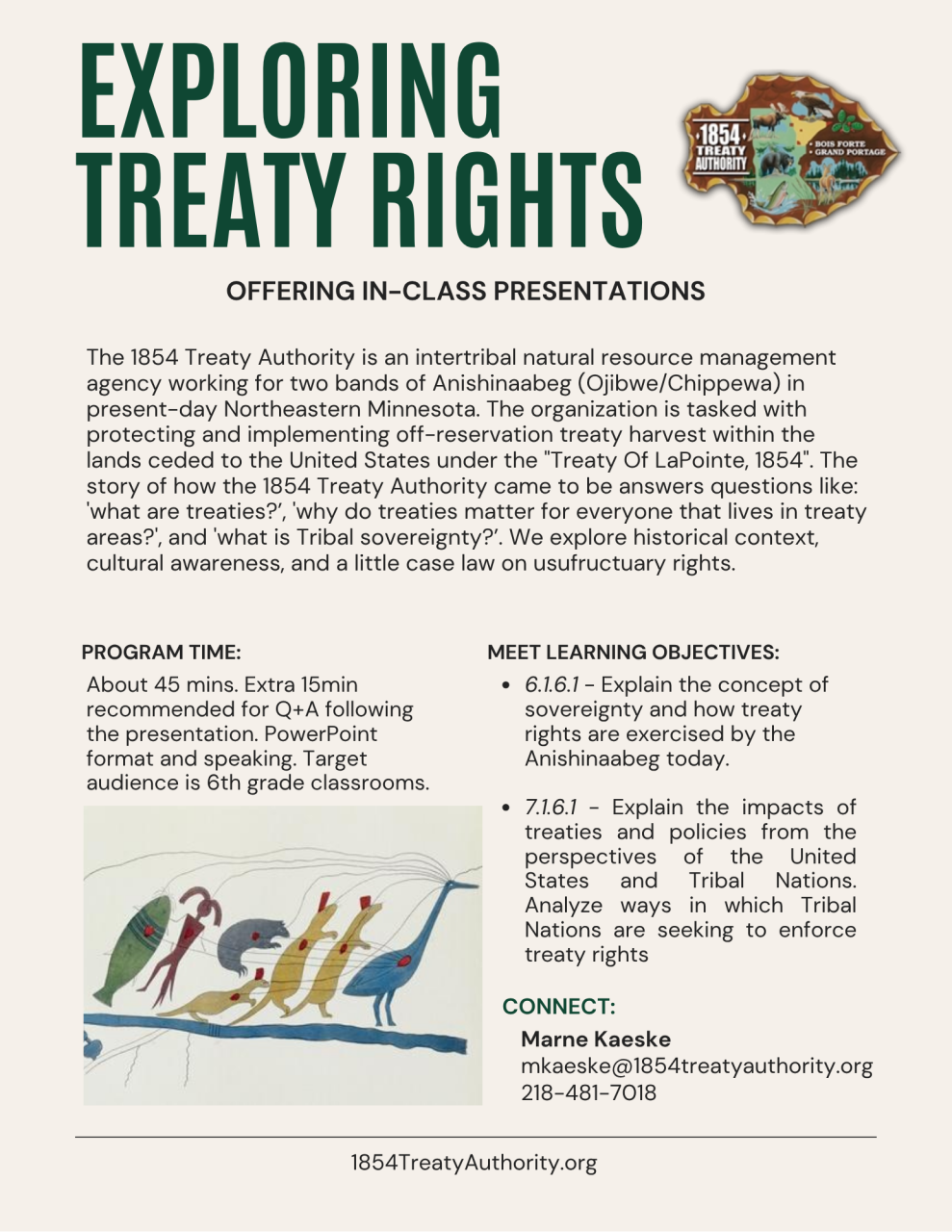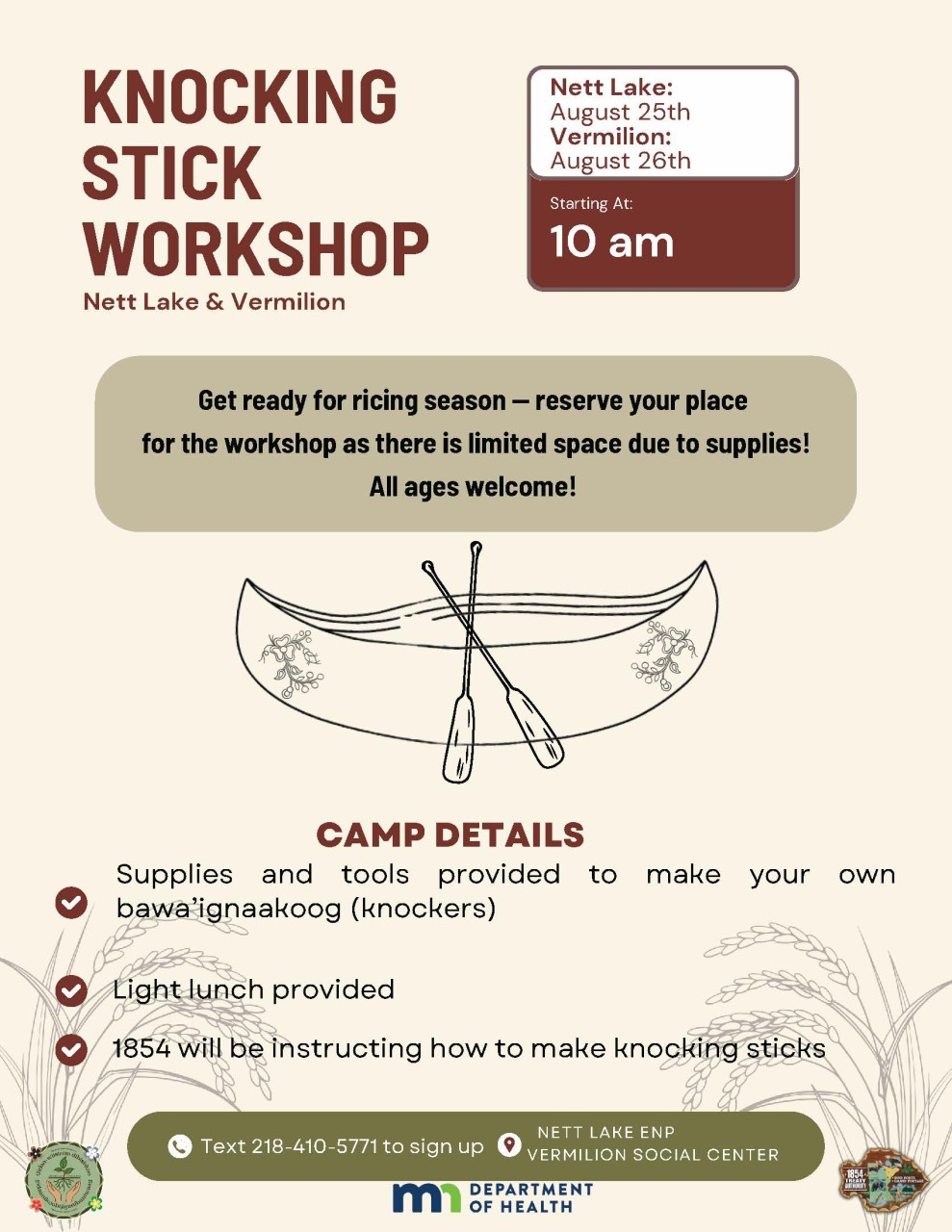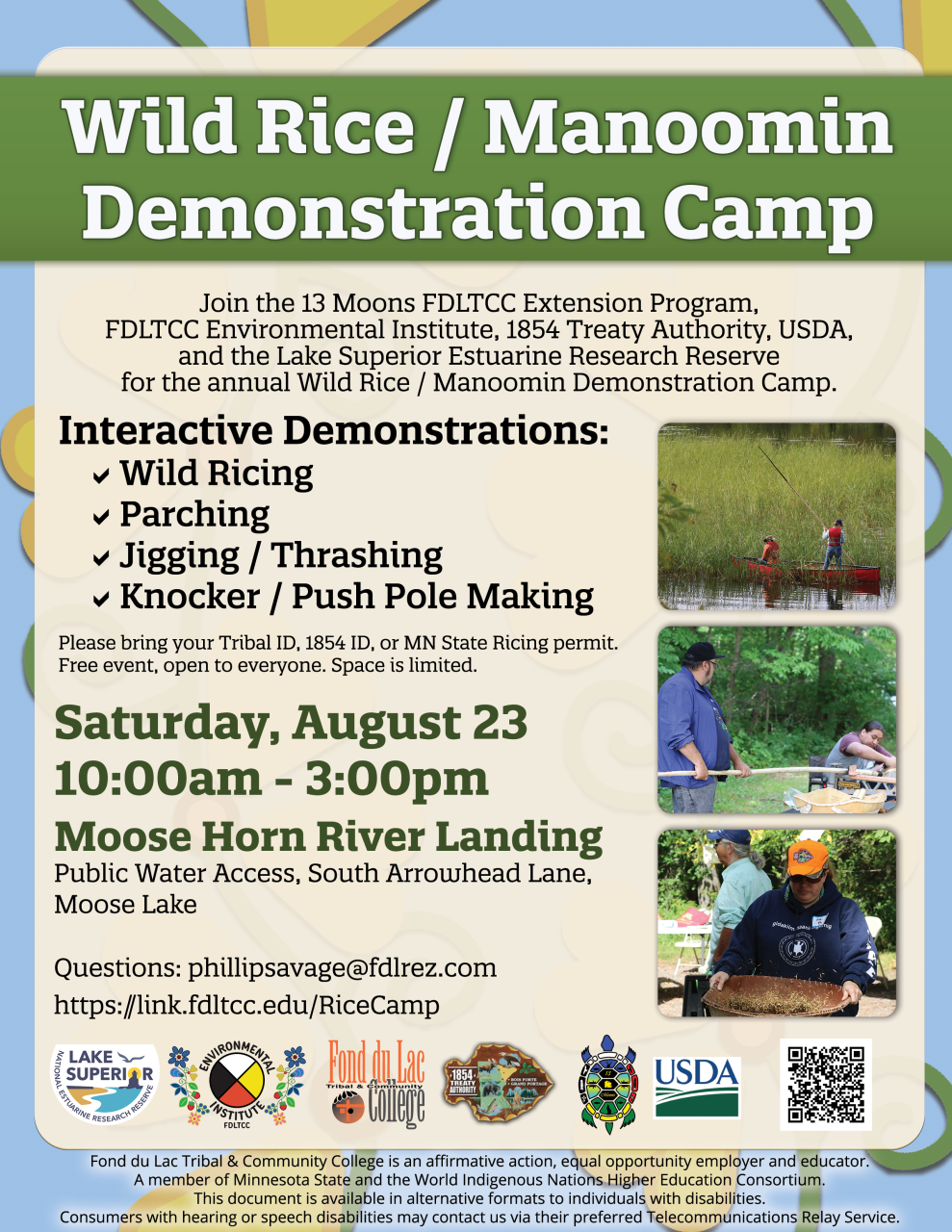1854 TREATY AUTHORITY
The 1854 Treaty Authority is an inter-tribal natural resource management organization that protects and implements the off-reservation hunting, fishing and gathering rights for the Grand Portage and Bois Forte bands in the lands ceded to the United States government under the Treaty of La Pointe, 1854.
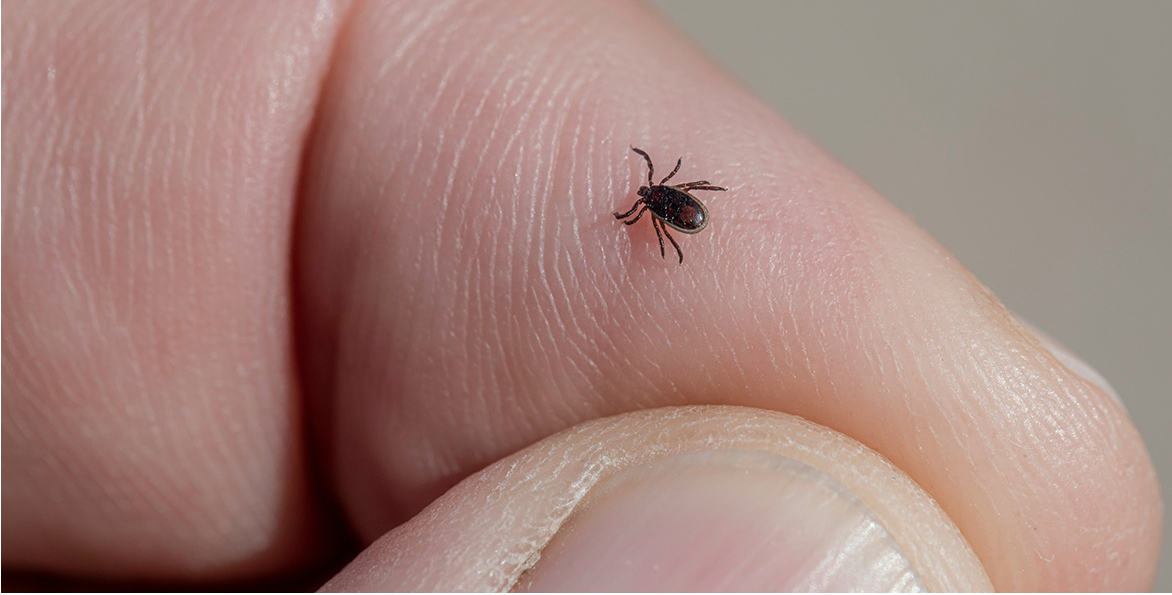
Tick Safety
The 1854 Ceded Territory hosts about a dozen different species of tick; the deer tick is the most notorious, where 1 in 3 adult ticks carry the bacteria that causes Lyme’s disease. Always do a quick check after a jaunt in the woods...
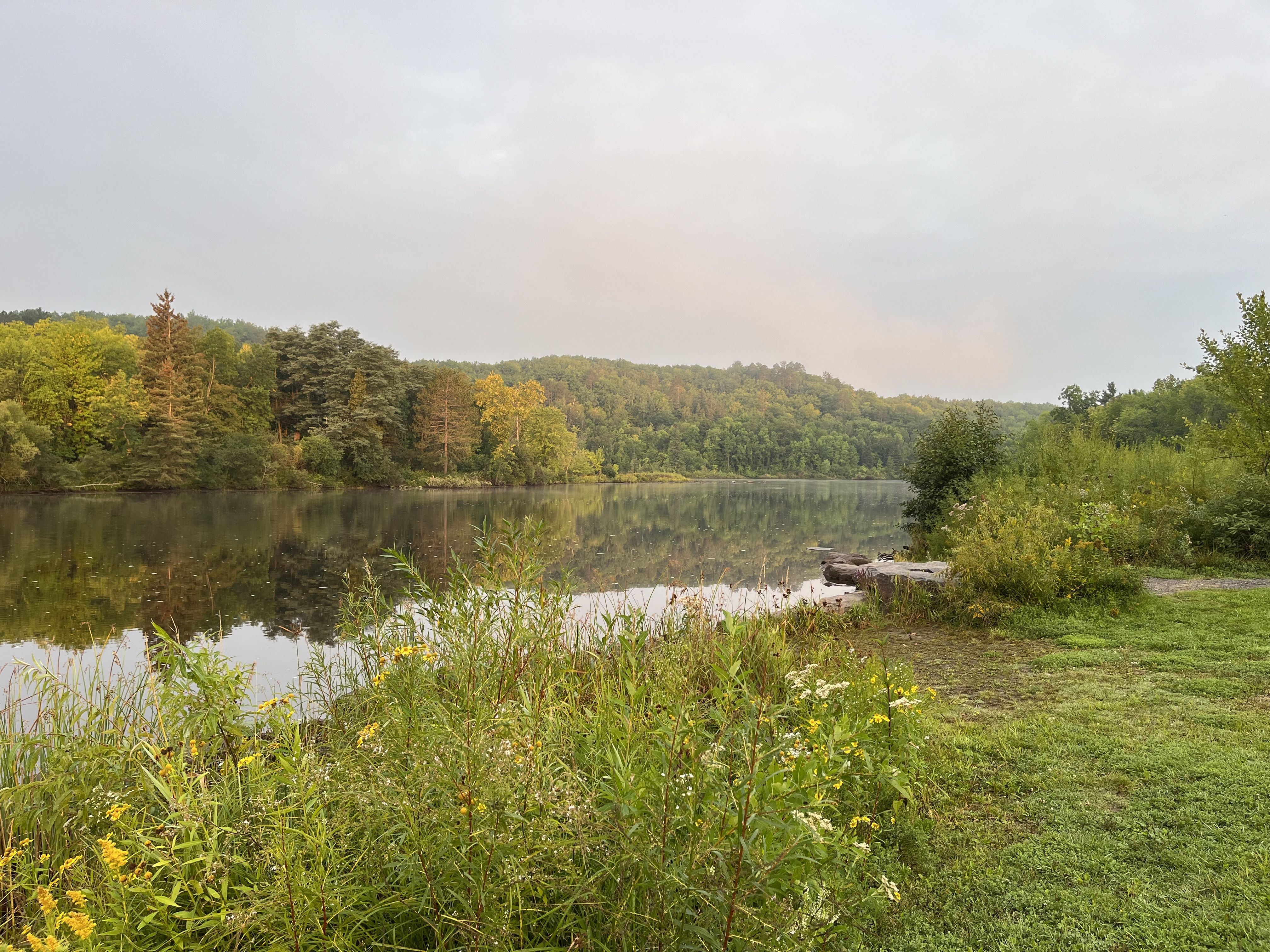
Update: 12/15/2023
The COVID era provision regarding use of Tribal ID's in lieu of an 1854 card has now EXPIRED and band members need to make sure they have a valid 1854 ID Card while exercising treaty rights.

Treaty Rights Includes Camping
Grand Portage and Bois Forte Band members may use designated USFS Superior National Forest campgrounds exempt of fees. Band members must have an 1854 ID card on their person and agree to abide by both the USFS Regulations and the 1854 Superior National Forest Camping Regulations.
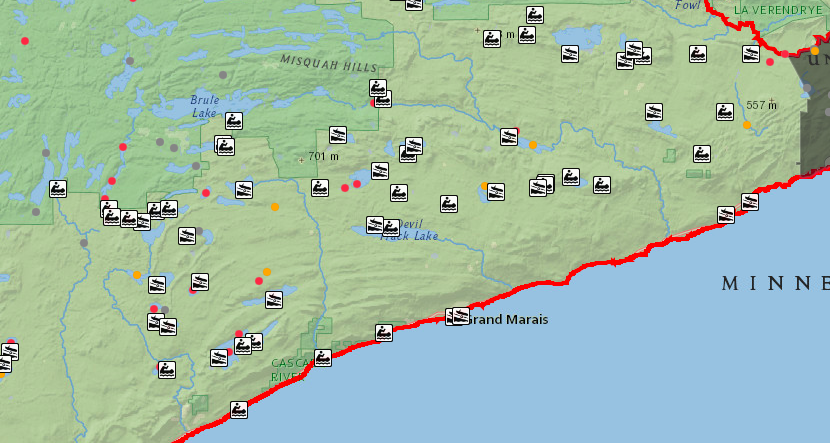
"Where can I go to harvest?"
With 5.5 million acres in the 1854 Ceded Territory, it can be daunting to try and figure out where treaty harvest can be exercised. Fortunately, we have the tool for the job! Explore the 1854 Interactive WebMap...
Latest News
Quick Links











Calendar
Featured Video
Warrior Walleyes and Invasive Rusties (PBS): “Ridding the North of Rusties” (starting at 16:25) shows researchers trapping rusty crayfish at Tofte Lake near Ely to develop methods for removing the invasive species. Rusties are bigger and more aggressive than native crayfish and can take over a lake, threatening wild rice production and shoreline vegetation. The Natural Resources Research Institute in Duluth is testing traps, baited with hot dogs, that are easy for tribes and lake associations to access.
